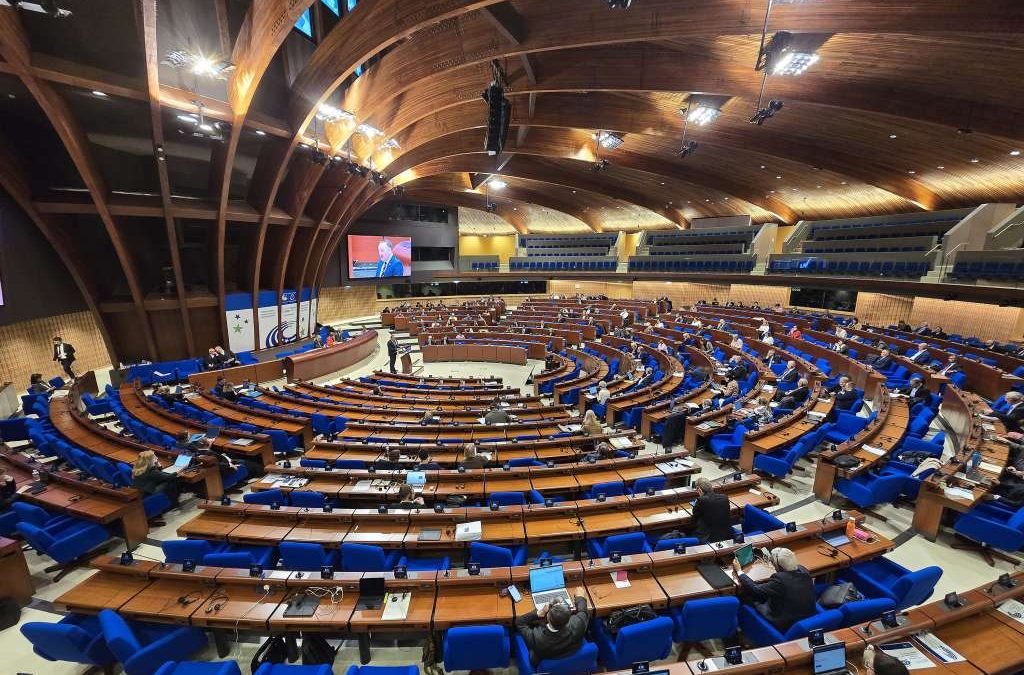Strasbourg, (Fena) – The Congress of Local and Regional Authorities of the Council of Europe presented a report on Wednesday in Strasbourg regarding foreign interference in election processes at the local and regional levels, warning of increasing attempts to destabilize democratic institutions, with Bosnia and Herzegovina, Ukraine, Moldova, and the United Kingdom mentioned as countries particularly affected by this issue.
Bosnia and Herzegovina is particularly highlighted in the Report due to issues with irregularities in voter lists, the influence of foreign actors through the financing of political entities, and attempts at cyber attacks on electoral systems, with a special mention of the discovery of a fake website of the Central Election Commission (CEC) of Bosnia and Herzegovina during the local elections in 2024, which was quickly removed.
The reporter Stewart Dickson (ILDG) from the United Kingdom said that the appearance of the fake CEC website caused serious concern and that the problem occurs on multiple levels.
– Firstly, the mere act of creating a fake site is concerning as it shows the vulnerability of institutions that failed to protect their system from such attacks. Secondly, such incidents undermine voters’ trust in electoral institutions, which can lead to citizens’ disinterest in registering on voter lists due to fear of misuse of personal data, for example, for financial fraud or identity theft. Therefore, when such situations occur, it poses an extremely serious problem – emphasized Dickson.
He added that foreign interference in elections is not just a problem for Bosnia and Herzegovina, but for all 46 member countries of the Council of Europe.
– Observation missions and contacts with local representatives show concern that there is indeed a certain level of foreign influence. In most European countries, it is felt that this interference comes from Russia, and there is clear evidence of Russian influence in countries like Georgia – said Dickson.
The report identifies three main forms of foreign interference, including information manipulation, illegal financing of political entities, and cyber attacks.
– Financial influence is directed at political parties and candidates, but also directly at voters, especially in countries with lower living standards. Examples include monetary allowances, transportation to polling stations, or even giving mobile phones to voters, with a request to photograph their ballot as proof of voting for a particular candidate. After voting, the phones are taken away from them. In addition, electronic influence via social networks is significant, where foreign actors use disinformation to encourage support for certain political parties or candidates. Some of these attacks come from “bot farms” outside the state, and there is evidence that such operations occur in Russia and China – Dickson emphasized.
Among the key recommendations highlighted in the Report is the need for strengthening the capacities of electoral bodies, establishing stricter rules on campaign financing, better regulation of social media, and increased transparency concerning foreign donations to political actors.
It also calls for cooperation among member states of the Council of Europe to counter common threats and preserve the integrity of local and regional democracy.
The report also states that Bosnia and Herzegovina is facing problems with disinformation campaigns targeting ethnic minorities, which further deepens political divisions and complicates electoral processes.
Given the political complexity of the country, Dickson emphasized that he does not think Bosnia and Herzegovina is more susceptible to foreign influence in elections than some other European countries. (27.03.)
 go to the original language article
go to the original language article
